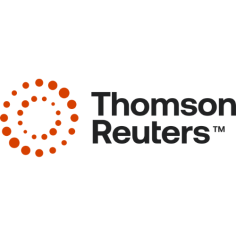Briefing LITL 2021 partner comment: Investing for the future – People, process and technology, by Thomson Reuters
With “other firms like mine” seen as the dominant competitive threat this year, firms must differentiate to achieve both revenue growth and improved profitability. Meanwhile, recognition that technology can play a part in achieving both differentiation and revenue growth/improved profitability is clear from the inclusion of “businesses that sell a combination of technology and contract lawyering” and “the Big Four” in the top three threats. It’s to be expected that priority projects for the next 18–24 months include replacements/rollouts of finance, HR, CRM and document automation systems, well established when it comes to achieving law firm efficiencies. These changes will operate alongside business and workplace transformation initiatives, pushed to the fore by the global pandemic. Transformation initiatives will focus on premises and workplace reviews and the evolution of the law firm operating model – a review of people, process and technology, for example, introducing pricing and profitability skills for lawyers, lawyer-utilisation initiatives, client-focused service design and cloud transformation.
The offer of a Briefing-gifted £100,000 ‘magic wand’ investment sparked a similar desire to invest in a review of people, process and technology centred around the lawyer and the client. Key to developing the lawyer (and the law firm) of the future will be systems that can educate lawyers on workflow inefficiencies, provide real-time pricing and profitability analysis, and cater for more modern ways to access legal knowledge. These systems will link training, competencies and performance to clients’ needs (with a focus on client self-serve) to improve legal service delivery and, in turn, utilisation and profitability.
This sponsor comment was taken from Briefing Frontiers: Legal IT landscapes 2021. To read the full report, click here.



